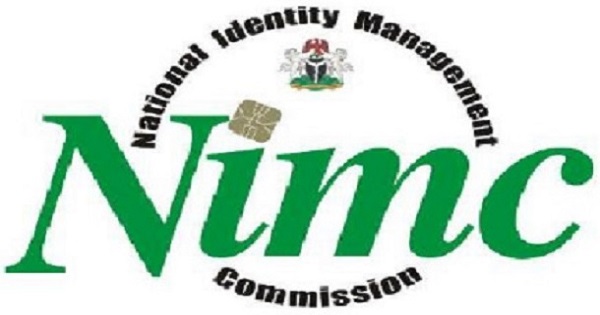News
NIMC Enrols over 70m, Records 15m Mobile App Downloads

The National Identity Management Commission (NIMC), has disclosed that it had enrolled over 70 million persons in the ongoing National Identity Number (NIN) registration, with over 15 million of its mobile App also downloaded.

In a statement issued by its Head Corporate Communications, Kayode Adegoke, it said: “The National Identity Management Commission NIMC, has recorded positive growth with enrolment drive by successfully registering and issuing Smseventy million (70 Million) unique National Identification Numbers (NINs) to Nigerians and legal residents.
“Similarly, the Commission is happy to announce that Fifteen Million (15 million) users have downloaded the recently launched NIMC MOBILE APP. The NIMC mobile APP allows users to digitally verify their NINs, link their NINs to the SIM (up to seven numbers) and print the improved NIN slip from the comfort of their homes/offices.”
The Director-General/CEO NIMC, Aliyu Aziz, attributed the agency’s great achievements largely to the Minister of Communications and Digital Economy, Isa Pantami.
He said: “The Commission was able to achieve the feat due to the immeasurable contributions of President Muhammadu Buhari, GCFR, the Honourable Minister of Communications and Digital Economy, Professor Isa Ali Ibrahim(Pantami), the hardworking staff, the Front End Partners (FEPS) and other critical stakeholders in the identity sector.
“The leadership and continued support of Professor Isa Ali Ibrahim (Pantami), to the ID agenda of Nigeria and improved staff welfare; and further expressed his appreciation to the commitment of the NIMC staff and the Front End partners towards ensuring the growth of the National ID Database.
“It would be recalled that President Muhammadu Buhari, GCFR, recently launched three (3) unique digital innovations by the Commission: Tokenisation, NIMC Mobile APP and the contactless enrolment solutions to drive the digital economy policy of the Federal Government through the Ministry of Communications and Digital Economy.”
“NIMC promises to build a positive brand and continue to explore ways to improve and efficiently offer excellent Identity services to all and sundry.”
News
LIRS to Invoke NTAA to Recover Unpaid Taxes from Bank Accounts, Others

Lagos Internal Revenue Service (LIRS) pursuant to Section 60 of the Nigeria Tax Administration Act (NTAA), plans to ask Nigerian banks to debit bank accounts of employers who failed to remit tax liability.

This was disclosed in a recent notice on Sunday.
LIRS stressed that the move was in line with the implementation of the country’s NTAA and other new tax laws, which took effect on January 1, 2026.
“Where a taxpayer fails, neglects, or refuses to settle any established outstanding tax liability when due, LIRS may exercise its power under Section 60 to direct any of the following persons to pay the amount owed by the taxpayer:
“Banks and other financial institutions; Employers; tenants, debtors, or customers of the taxpayer; Agents, business partners, and any person holding money on behalf of the taxpayer; Any person owing money to the taxpayer, whether presently due or accruing. Once a substitution notice is issued, the person served is statutorily required to remit to LIRS the amount. Specified in the notice from funds belonging to, or payable to, the defaulting taxpayer,” the LIRS notice partly read.
Meanwhile, Taiwo Oyedele, chairman of the Presidential Committee on Fiscal Policy and Tax Reforms, weeks ago ruled out claims that the government would debit personal accounts over tax remittances.
News
Anambra Cuts Monday Pay to Kill Sit-at-Home

Anambra State will implement pro-rata salary payments for civil servants starting February 2026, targeting chronic Monday absenteeism from the long-running sit-at-home order, Information Commissioner Dr. Law Mefor announced Saturday.

Soludo
Speaking at an Awka briefing after the Executive Council’s end-of-tenure retreat, Mefor said improved security and transport have eliminated excuses for the four-year disruption, which cost the state trillions in lost revenue. “Workers enjoyed full pay despite staying away; now, no work means no pay for that day, calculated over 24 working days,” he stated.
Compliance measures include mandatory Monday clock-in forms, with markets urged to reopen fully amid bolstered security. This builds on a January 22 executive order docking 20% pay from teachers absent on Mondays.
Mefor warned that lost Mondays cripple revenue collection and productivity, rejecting alternatives like Saturday shifts as capitulation to agitators.
News
Stakeholders Demand Stronger Governance and Infrastructure to Drive Tech Adoption @ Lagos AI Summit

As AI adoption accelerates across Nigeria, leaders at the “AI in Action Now” conference 2026 have called for a balance between rapid innovation and strict regulatory governance. The event, held at the Lagos Oriental Hotel, highlighted both the doggedness of Nigerian builders and the risks of unregulated data usage.

Dotun Adeoye, Co-Founder of AI Nigeria, raised alarms over “Shadow AI”, a trend where employees upload sensitive official documents to public AI platforms. He praised the Nigerian Data Protection Commission (NDPC) for its recent aggressive stance, including multi-million-dollar fines against major banks and social media brands.
“Innovation without governance is dangerous. The regulator now has the job of educating players. We are working in partnership with them to ensure players don’t just get fined, but actually understand how to protect data locally rather than storing it abroad, ” Adeoye noted.
Addressing issues of lack of infrastructure to carry AI adoption, Conference Convener Debola Ibiyode admitted that while Nigeria lacks the traditional foundation for AI adoption, the tech community cannot afford to wait.

“The simple answer is we don’t have the infrastructure, but Nigeria has never really had infrastructure to drive anything, and we still thrive, ” Iboyode said, encouraging students and builders to look beyond current limitations. “Once we start to build based on what we have now, it will encourage those who need to provide the infrastructure to do their part. The world will not wait for us,” she insisted.
To bridge this gap, she highlighted the AI Foundry Africa, an incubator designed to mentor ideas into market-ready products.
Meanwhile, speaking to journalists on the sidelines, Biodun Ogunleye, the Lagos State Commissioner of Energy and Mineral Resources, echoed the sentiment that the government’s role is to facilitate the right environment through partnership. He emphasized that data generated from interactions with the government must have long-term value.
“We must ensure that in all facets from production to interaction with government, the tools required to ensure data has value are appreciated,” Ogunleye stated.
He concluded that through private-sector collaboration, the government can focus on its primary functions while leveraging AI to ensure the nation aspires for the future.

 E-Financial3 days ago
E-Financial3 days agoZenith Bank Gets Regulatory Approval for Full Takeover of Paramount Bank

 Telecom3 days ago
Telecom3 days agoNew Investment Fund Targets Acceleration of Emerging Technology in Nigeria

 E-Business3 days ago
E-Business3 days agoFirm Detected a Fivefold Surge in QR Code Phishing Attacks in the Second Half of 2025

 General News2 days ago
General News2 days agoPalmPay User Shares Experience on Fintech Apps to Trust in Nigeria

 News2 days ago
News2 days agoStakeholders Demand Stronger Governance and Infrastructure to Drive Tech Adoption @ Lagos AI Summit

 General News2 days ago
General News2 days agoNigerians Target Self-Improvement, Business Startups in 2026 Google Data

 News2 days ago
News2 days ago35 Million Nigerians Face Acute Hunger in 2026, UN Warns

 General News2 days ago
General News2 days agoHow Inside Jobs and Policy Shocks Trigger Nigeria’s Rising Loan Crisis





















